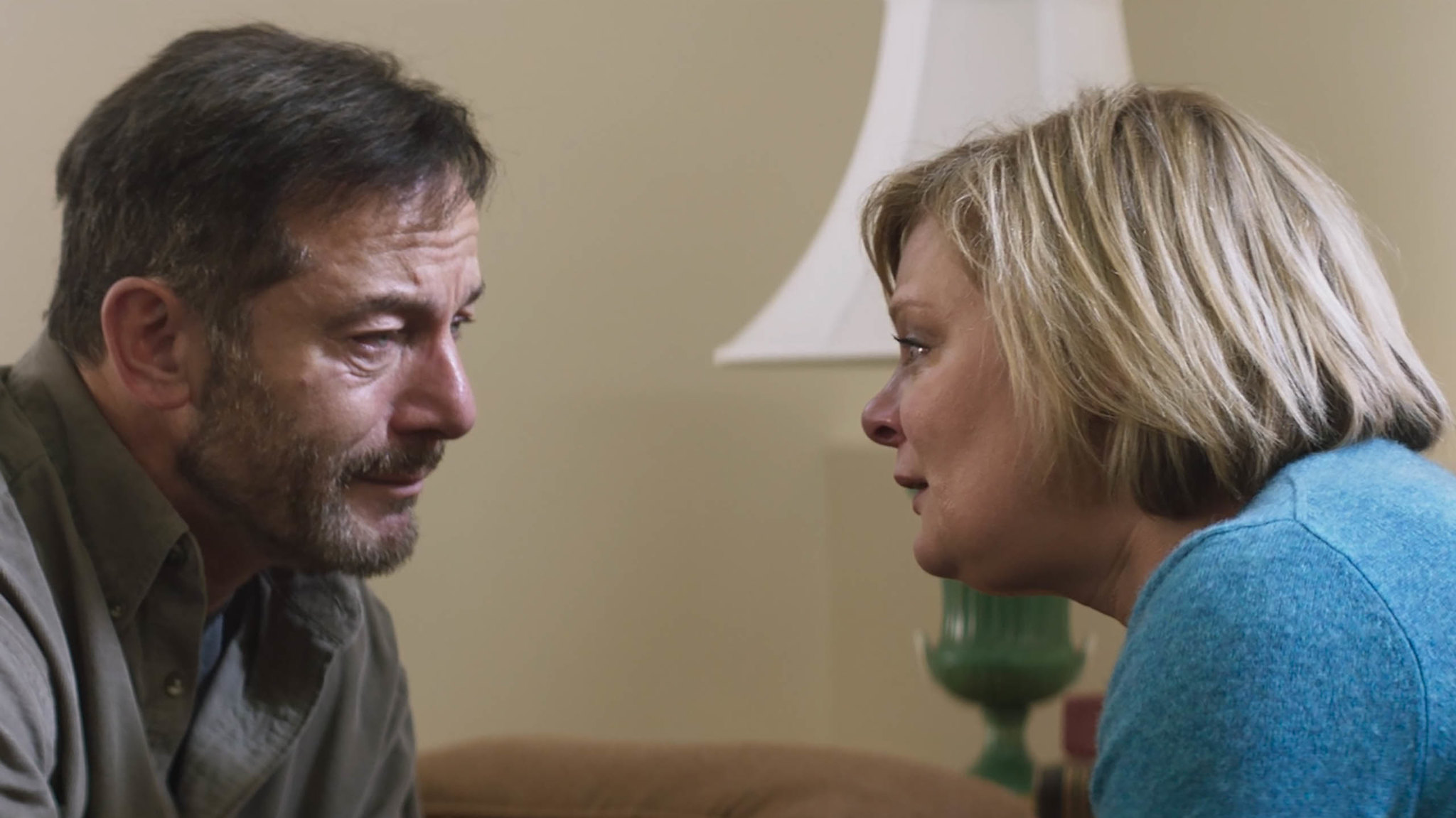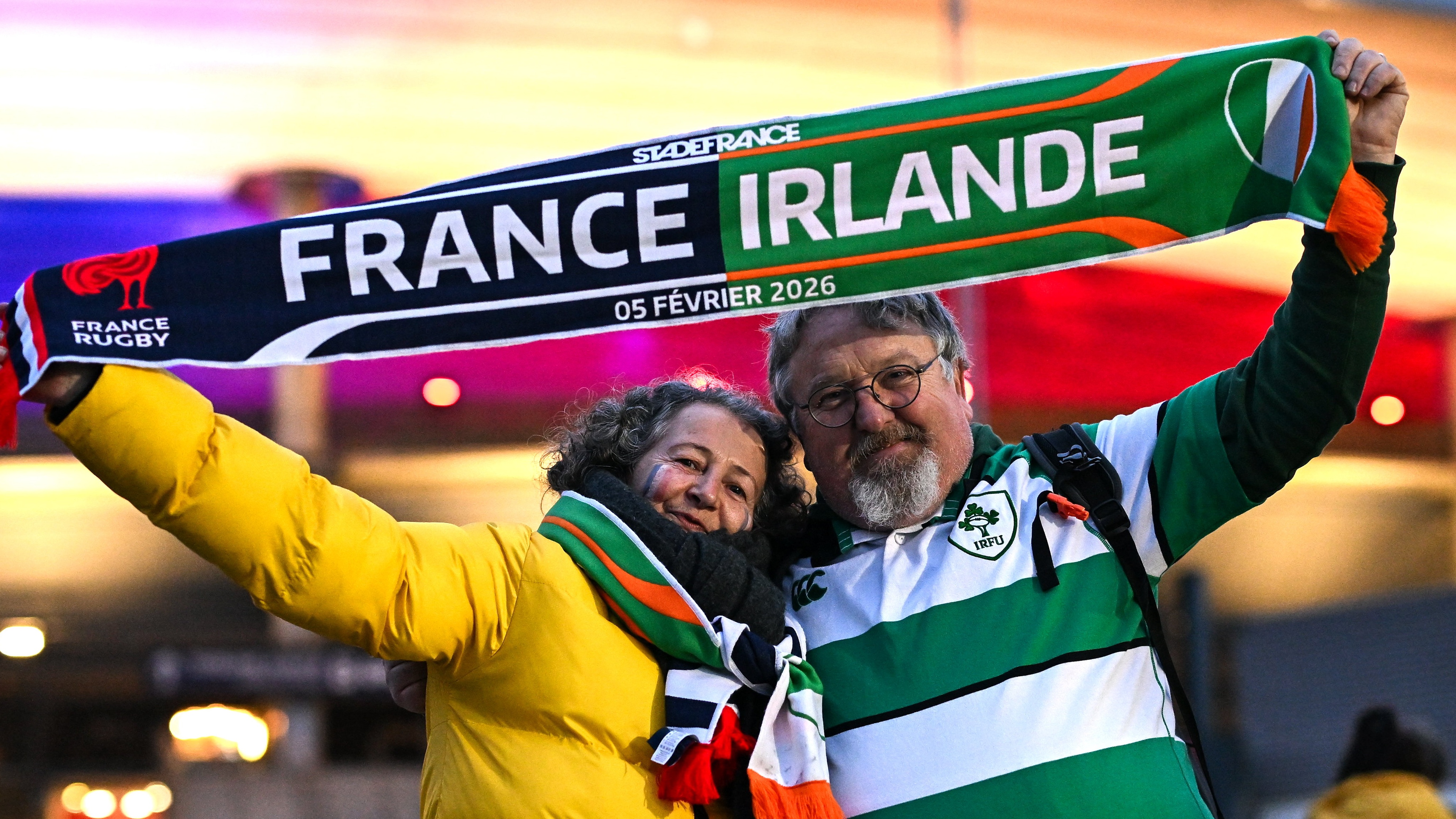What to Watch Verdict
Fran Kranz expertly mediates a compassionate confrontation in his 'open wound' feature debut.
Pros
- +
⛪ Every. Single. Actor.
- +
⛪ Dialogue that's allowed to get lost in emotions.
- +
⛪ Filmmaking at its most intimate.
- +
⛪ Powerful performances.
Cons
- -
⛪ Reliant on minimalism.
- -
⛪ Might not be what some want to hear.
In Mass, writer and director Fran Kranz isolates insurmountable intimacy through a parade of conversational blows. A chapel's multi-purpose room, four folding chairs, a wooden crucifix, and some water bottles. That's all the "stoner from Cabin In The Woods" needs to steamroll audiences with a consuming conversation about empathy, forgiveness, and parenthood.
It's not a movie that cheaply wields hate or accusations, it's a gut-wrenching experience about finding the words — the tolerance, the compassion — to say what nothing can properly describe yet can finally be heard and understood.
Husband Jay (Jason Isaacs) and wife Gail (Martha Plimpton) arrive at a quaint suburban church and shuffle into a spacious meeting room. Soon after, organizer Kendra (Michelle N. Carter) ushers in Richard (Reed Birney) and Linda (Ann Dowd), the latter of which presents a homemade floral arrangement — a sympathetic gesture. Gail expresses gratitude, but the air is thick with discomfort and tension. Kendra leaves, granting the group privacy.
The four start with awkward small talk but, before long, their interactions cut to the main objective. Richard and Linda's son, Hayden, murdered Jay and Gail's son, Evan, along with nine other victims in a premeditated classroom attack and if there's ever a chance for closure, it's now.
The vulnerability, the rawness, the emotional exhaustion throughout Mass builds until it feels like it could explode with any offhand misspoken retort. Kranz's minimalism centers the conversation in a single location. The density of agonizing thoughts weighing down on a cheap plastic folding table. At no point does Mass deviate from being a moving character piece — resting squarely on the capabilities of four actors asked to parse out reflections, insistences and questions. It's an exploration that could easily have torpedoed itself on themes alone and yet the bare-all connections that Kranz's script fosters are unforgettable. Every performance is pitch-perfect. Every teardrop, plea and choked response earnest.
Kranz fearlessly exposes the collaborative beauty in an otherwise devastating, worst-case scenario. Years have passed, depositions recorded, news media spun — the parents convene at a crucial moment where Jay and Gail demand something, but darting eyes confirm that no one quite knows what. Jay hammers on about psychological diagnostics. Gail hopes to honor a selfless promise that would make Evan's death meaningful. Linda struggles to discern the killer from her baby and Richard fields accusations of appearing too complacent. Despite this, Mass is never a vindictive pay-per-view brawl. Kranz magnificently avoids allocating validity to warring sides. Instead he champions the healing power of shared torments versus suffering alone.
It's the intimacy of boxy settings, of character relations, that allows Jason Isaacs to silence a movie theater just by slamming his fist or send a shiver as Ann Dowd's Linda questions if her life was still bettered by Hayden's birth. Martha Plimpton's begrudging mother Gail shares photos of Evan, of their hokey last Christmas portrait and retreats into her shell when Dowd trumps her sadness by breaking out into tears. Reed Birney as Richard comes off callous at first, matter-of-fact, until Jay starts shouting the gory, time-coded details of his son's assassination, only to be met by Richard's counter of listing every victim, the timecodes and the spiritual gravestones he keeps in memory, alongside Hayden's.
The latest updates, reviews and unmissable series to watch and more!
Kranz's screenplay asks the characters to vent their grievances and grapple with the ungraspable, but never from a place of heated amplification. Nor is it schmaltzy or the truth lost within a kiss-and-make-up de-escalation that would insult the sloppy complexity of grief.
Mass is a profoundly moving ode to empathy that is often lost when relying on intermediaries. Fran Kranz removes those obstacles to ask why, if this group can attempt reconciliation, what's stopping the rest of us? Kranz and the cast of Mass create one of the more fearless, intense and heartbreakingly resonant American tales of recent memory. A movie that'll make you squeeze your hugs a little tighter once it ends.
Matt Donato is a Rotten Tomatoes approved film critic who stays up too late typing words for What To Watch, IGN, Paste, Bloody Disgusting, Fangoria and countless other publications. He is a member of Critics Choice and co-hosts a weekly livestream with Perri Nemiroff called the Merri Hour. You probably shouldn't feed him after midnight, just to be safe.


